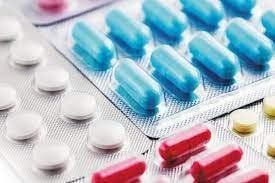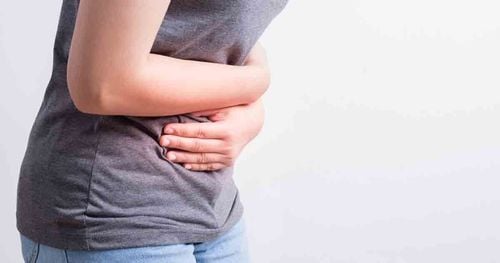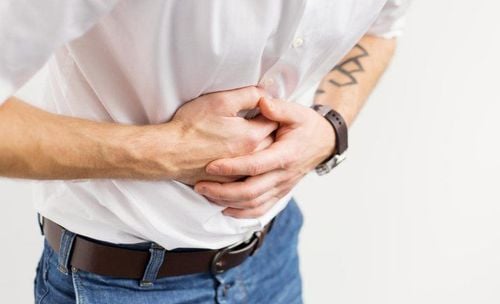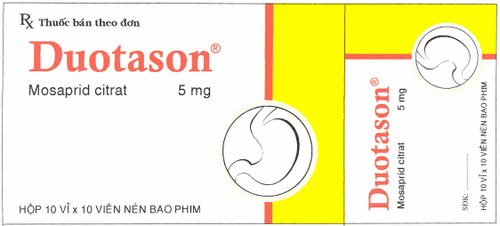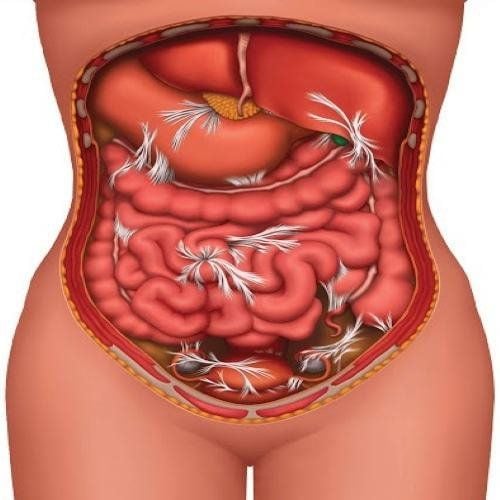This is an automatically translated article.
The article is professionally consulted by Master, Doctor Nguyen Thai Binh - Gastroenterologist - Department of General Surgery - Vinmec Ha Long International General Hospital. Master, Doctor Nguyen Thai Binh has more than 20 years of experience working in abdominal surgery.Postoperative semi-obstruction is a very common condition in patients who have undergone abdominal surgery, especially appendicitis surgery. Causes of semi-obstruction after surgery may be due to intestinal adhesions, torsion ligaments, decreased intestinal motility or residual foreign bodies.
1. What is semi-obstruction?
Intestinal obstruction is a pathological condition that shows that the circulation of substances in the intestinal lumen is blocked and cannot escape from the body. Obstruction can occur at one or more sites, where the obstruction occurs incompletely is called semi-obstruction.Intestinal obstruction or semi-obstruction after surgery is a fairly common condition in patients undergoing abdominal surgery, especially appendicitis surgery, the cause of postoperative semi-obstruction was determined to be due to the patient's adhesions. bowel movements or decreased bowel movements.
2. Postoperative intestinal obstruction may occur soon
Intestinal obstruction and semi-obstruction after surgery is one of the complications that can occur as early as a few days after surgery or later (after a long period of years after surgery).In case the patient with intestinal obstruction is detected early while still in the hospital, sometimes it is only necessary to insert a nasogastric tube to aspirate the intestines to collapse, and the patient can be cured without surgical intervention. However, if bowel obstruction occurs late and is not detected in time, the risk of complications is higher.
3. Causes of semi-obstruction of bowel after surgery
The cause of intestinal obstruction is mainly due to the fact that during surgery, the tissues in the abdominal wall, peritoneum or the intestines themselves are damaged, creating sticky fibrous organizations or forming cords. ligaments during the healing process. This is the trap that causes the intestines to get caught and twisted, causing an obstruction.In addition, small foreign bodies that fall into the abdomen such as food, surgical threads ... over time forming sticky fibers can also be the cause of intestinal obstruction.
A known cause of intestinal obstruction is the functional paralysis of the intestinal loops after surgery, so they will be inactive. If there is a twist, stick, they will also stay in the same position until it is favorable to cause a blockage later.
4. Warning signs of semi-obstruction of bowel after surgery
Patients after undergoing abdominal surgery, if they see the following signs, immediately think of a case of intestinal obstruction, semi-obstruction of the intestine after surgery and promptly notify the doctor, specifically:Abdominal pain, the pain became intermittent and then subsided, then it hurt again, the next time it hurt more than the last time; Abdominal bloating, nausea, vomiting; No transit, no going out; Loss of fluid causes fatigue, even pulse failure. In case the patient has severe abdominal pain, sweating, dizziness, pale skin, blood in the stool, it is very likely that the intestine has necrotic volvulus, which requires emergency treatment as quickly as possible.
5. Diet and exercise to prevent intestinal obstruction after surgery
Postoperative semi-obstruction is closely related to the patient's diet and exercise after surgery. In the postoperative period, when the patient wakes up and feels his health is gradually recovering, the patient should try to move early to avoid intestinal inertia and the risk of sticking together. If possible, the patient should sit up early and move around the bed right after surgery from the 2nd day to help the intestines circulate and soon have bowel movements.After being discharged from the hospital, patients should not be subjective but exercise in accordance with their own health situation. It is recommended to walk every day to keep the body healthy and enhance bowel movements to help the intestines work better.
In addition, after surgery, the patient should pay attention to the diet, should avoid fibrous, hard foods and fruits high in tannins because if these substances will stick together and create a mass of food residue, Postoperative intestinal obstruction.
In summary, post-operative semi-obstruction has a high risk of recurrence, so patients need to be very attentive and take the best health care measures.
Please dial HOTLINE for more information or register for an appointment HERE. Download MyVinmec app to make appointments faster and to manage your bookings easily.





